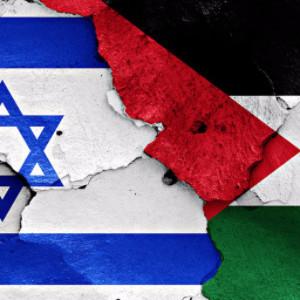
Israel-Palestine Backgrounder
The Israel-Palestine question is too controversial for most media organizations. But not for Alternative Radio. The following six programs aired on nearly 200 radio stations.
Includes:
An Israeli Dissident View
Occupation has a corrosive and corrupting effect not just on the occupied but on the occupiers as well. The British learned this in Kenya as the French did in Algeria and maybe the U.S. did in Iraq. People don’t like to be occupied. Thus, severe measures are employed to keep them controlled. Israel is a case in point. Palestinians have endured more than five decades of occupation. They have been subjected to land seizures, destruction of homes and fruit trees, torture, checkpoints, curfews, barriers, collective punishment and extrajudicial killings. In terms of the tactics of repression Israel is no different from other occupiers. But there is one crucial difference: U.S. support. Washington has given over the years more than $130. billion in aid to Israel. That’s more than any other country gets by far. The U.S. by its largesse enables the occupation.
Recorded at Seattle Pacific University.
The Never Ending Occupation: Palestine
2 CDs Israeli general and later prime minister Ariel Sharon said of the Palestinians: “We’ll make a pastrami sandwich out of them. We’ll insert a strip of Jewish settlements in between the Palestinians and then another strip of Jewish settlements, right across the West Bank, so that in 25 years’ time neither the United Nations nor the United States, nobody, will be able to tear it apart.” Sharon said that in 1973. Today, there are more than 600,000 settlers in the occupied territories. They are facts on the ground, as the Israelis like to say. All of the settlements are outside Israel’s internationally recognized borders, and are unambiguously illegal under international law. Thomas Friedman, in The New York Times, says the settlements constitute “a tacit annexation of the West Bank,” and then he adds, “and is not winning Israel friends in Europe or America.” This event was presented by the Lannan Foundation.
Shattered Peace: Israel-Palestine
Outrage follows outrage in Israel and Palestine. Yesterday’s atrocity is quickly forgotten as a new one occurs. There is a dizzying vortex kidnappings, stabbings, killings of teenagers and rabbis, attacks on synagogues and mosques, rockets, invasions, bombings, curfews, collective punishment, and demolition of homes. Meanwhile, Israeli settlements on occupied Palestinian land, contravening international law, continue unabated. Occasionally, Washington says they are “unhelpful.” But there are no consequences. U.S. policy, meek rhetoric aside, enables settlements. The so-called peace process is dead. The Palestinians feel hopeless and desperate. Their prospects for a viable state seem more remote than ever. The prescription for more violence is in place. Can these polarized and deeply divided communities live together or are they destined to be in perpetual conflict? What would constitute a just and lasting peace?
Oil & Gas Wars
Gas prices are falling. The price of oil per barrel is at its lowest level in several years. Why? We’re told the global economy is slowing down again. Europe is sluggish. Japan is in recession. China’s growth rate is weakening. But there may be other factors. The U.S. is producing a huge amount of oil, particularly from shale. Prices are dropping because the market is flooded and production is outstripping demand. Reportedly, the U.S. got the Saudis, still the biggest producer, to quietly agree to increase their output. Who is hurt the most? Washington’s designated enemies: Russia and Iran. Both heavily depend on oil and gas revenues. There is a glut in natural gas too. But the quest for oil and gas never ends as energy corporations are looking to big paydays ahead and states seek to enhance their power. Recorded at the University of Montana.
Palestine: 50 Years of Occupation
Fifty Years have passed since Israel’s victory in the Six-Day War resulting in the longest military occupation in modern times. And on the ground there has been a radical shift in demographics because of the settlements. What began as a few scattered outposts has now mushroomed into vast sub-divisions and cities with Jewish only road networks connecting them make it difficult for Palestinians to travel. About 600,000 Israelis now live beyond the country's 1967 borders. The Palestinians are being squeezed into ever smaller and smaller enclaves, isolated and without sufficient water. The settlements, illegal under international law, are a key obstacle to the resolution of the conflict. But Israel continues to expand them. Each new house makes the possibility of a just peace more remote. And Washington makes it all possible with its ongoing economic, military and diplomatic support for Israel. Interview by David Barsamian. Recorded at KGNU.
Justice in Palestine
The level of ignorance and lack of knowledge about the Israeli-Palestinian issue is quite extensive. Israel is a strategic ally of the U.S. and a military and economic power in its own right. All true. The Palestinians? Well, they are an irritant. Why don’t they just go away, move someplace else? They had their chances for statehood but they botched them. The actual realities on the ground? Uh, can we change the subject? The many so-called peace processes and road maps have led to dead ends for the Palestinians. They watch as more and more of their land and water are seized by Israel. Sixty percent of the West Bank, which is supposed to be part of a Palestine state, is under Israeli control. Most of the settlements are there. Given the situation, what will the future hold? Lecture followed by David Barsamian interview.
Speakers
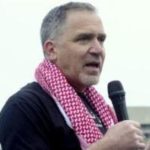
Miko Peled
Miko Peled was born in Israel to a prominent Zionist family. His grandfather signed Israel’s Declaration of Independence. His father, Matti Peled served as a general in the 1967 war. He is an advocate for Palestinian rights and lectures widely on the Israeli-Palestinian conflict. He is the author of The General’s Son: Journey of an Israeli in Palestine and Injustice: The Story of the Holy Land Foundation Five.
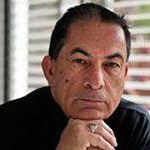
Gideon Levy
Gideon Levy was born and lives in Tel Aviv. He is a columnist and member of the editorial board of Ha’aretz, Israel’s oldest daily newspaper, where he has covered the Israeli occupation of the West Bank and Gaza for more than 30 years. The author of The Punishment of Gaza, he has received several awards for his work including the Olof Palme Prize for his “courageous and indefatigable fight against occupation and violence, and for a future Middle East characterized by peaceful coexistence and equality for all.”
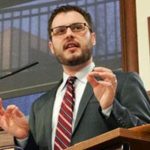
Josh Ruebner
Josh Ruebner is the National Advocacy Director of the U.S. Campaign to End the Israeli Occupation. He directed Jews for Peace in Palestine and Israel and is the author of Shattered Hopes: Obama’s Failure to Broker Israeli-Palestinian Peace.

Michael Schwartz
Michael Schwartz teaches at the State University of New York at Stony Brook. His articles appear in TomDispatch, Mother Jones, Against the Current, and Z. He is the author of many books including War Without End: The Iraq War in Context.

Max Blumenthal
Max Blumenthal is an award-winning journalist and editor-in-chief of The Grayzone. He is the author of Goliath: Life and Loathing in Greater Israel, The 51-Day War: Ruin and Resistance in Gaza and The Management of Savagery.

Ali Abunimah
Ali Abunimah is an internationally recognized Palestinian-American journalist. He is co-founder and director of the Electronic Intifada, an independent online news service on Palestine. His articles have appeared in The New York Times, The Los Angeles Times, and The Guardian. He is the author of One Country: A Bold Proposal to End the Israeli-Palestinian Impasse and The Battle for Justice in Palestine.

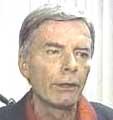
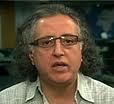

RICK CHERTOFF –
If you intuit how morally bankrupt both American political parties that would create a vacuum for a Trump to fill, you will see that rot nowhere better than tacit American support for the Israeli ethnic cleansing project ongoing with American backing from Clinton to Bush to Obama, and now Trump. Quiet covered up incremental genocide, and you can read any and all the above writers about it. The word is out. Did You know?